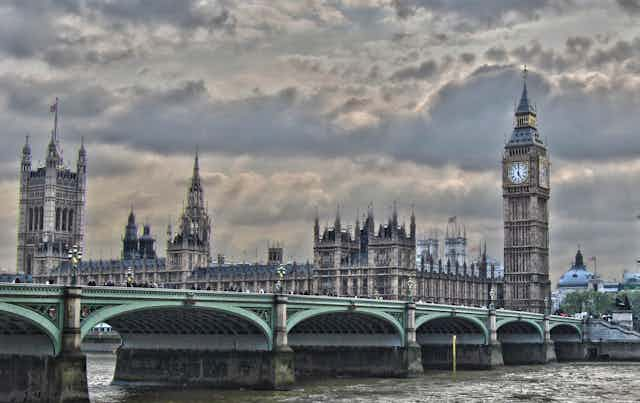A parliamentary committee has recommended that British politicians move out of the Palace of Westminster en masse in order to allow major restoration works to go ahead. This will be a multi-billion pound job, but should be seen as much as an opportunity as a cost.
The committee’s decision to call for everyone to leave is not simply a politically brave proposal, it is also the correct one to make. The scale of disrepair that must now be addressed at Westminster is itself the result of the failure of previous governments to engage with the public about the cost of democracy. One administration after another avoided making the necessary investment to stop the building crumbling. The result is the current crisis and the need for such large and expensive repair work.
To talk of a “crisis” might be interpreted as simply part of the hyperbole that often surrounds contemporary politics. But in this case I would argue the term is completely justified.
An in-depth appraisal of the situation published in 2015 warned that “the risk of catastrophic failure is increasing”. It concluded that “a major failure of the existing service infrastructure is inevitable”. Parliament, in short, is falling down.
It is therefore to the committee’s credit that it has listened to the evidence and rejected the temptation to delay for short-term political gain. It has had the foresight to recommend the “full decant” option for Westminster. All MPs and peers should leave to occupy other buildings while works take place. The committee suggested that the House of Commons move to a nearby building currently occupied by the Department of Health and that the House of Lords conduct its business from the QEII conference centre, also very close to the Palace of Westminster. This should maximise value of money and minimise disruption.
The restoration and renewal project is expected to take between five and eight years. It will cost around £3.5 billion. The “rolling decant” option, whereby works would be undertaken in specific areas while parliamentary life continued in the rest of the building, was predicted to cost twice this amount and take anywhere up to 25 to 40 years.

The timing of the restoration and renewal programme could hardly be worse. The economic context continues to be dominated by narratives of austerity and restraint. The political context is even worse, with the rise of populist parties and anti-political sentiment. Arguing that democracy comes at a price and therefore “selling” the idea of investing billions in the Palace of Westminster is a tough pitch to make.
This is exactly why previous generations of MPs and successive governments have shied away from the problem. The risk of a public backlash has been too daunting. But it’s also exactly why the current cohort of MPs and the government should plough ahead with the restoration. They should embrace the project as an opportunity to redefine how politics is “done” in the United Kingdom.
Fixing up
The state of the building means that doing nothing is no longer an option, and the real question is not one of simple economic cost but of social value. How can the renewal of the Palace of Westminster be used to close the gap between the governors and the governed?
This has little to do with self-interested politicians or feather-bedding ministers and everything to do with national pride and political confidence. It’s about protecting British heritage while also creating new democratic spaces. It’s about creating an atmosphere that is inclusive and welcoming and its about connecting with multiple publics in multiple ways.
That could mean creating new meeting places where the public and politicians can mix, making it easier to find your way around the building, offering more facilities to eat and drink, thinking about the use of light in order to create a less library-like ambience and – critically – thinking about how the public are welcomed into their parliament without feeling threatened, looked-down upon or like they are a distraction to the real work of the House.
Although security considerations are obviously important, the current use of machine guns, X-ray machines and concrete ram raid blocks are never going to offer a warm welcome. The contrast between the welcoming culture of the National Assembly of Wales and the Scottish Parliament is stark and should be noted as inspiration for the Westminster work.

It is also about accepting that anti-political sentiment is often misinterpreted. In my experience, very few people are anti-political. They would more accurately be labelled as “pro-a-different-way-of-doing-politics”.
Something has to change, otherwise political frustration might boil over. This is a chance to revitalise and redefine politics in the United Kingdom. This is the huge prize on offer to a parliament and government that is brave enough to seize the initiative. The price of democracy might be significant but in this case the long-term cost of not seizing the opportunity – the potential for dangerous levels of democratic disengagement – could be far greater.

